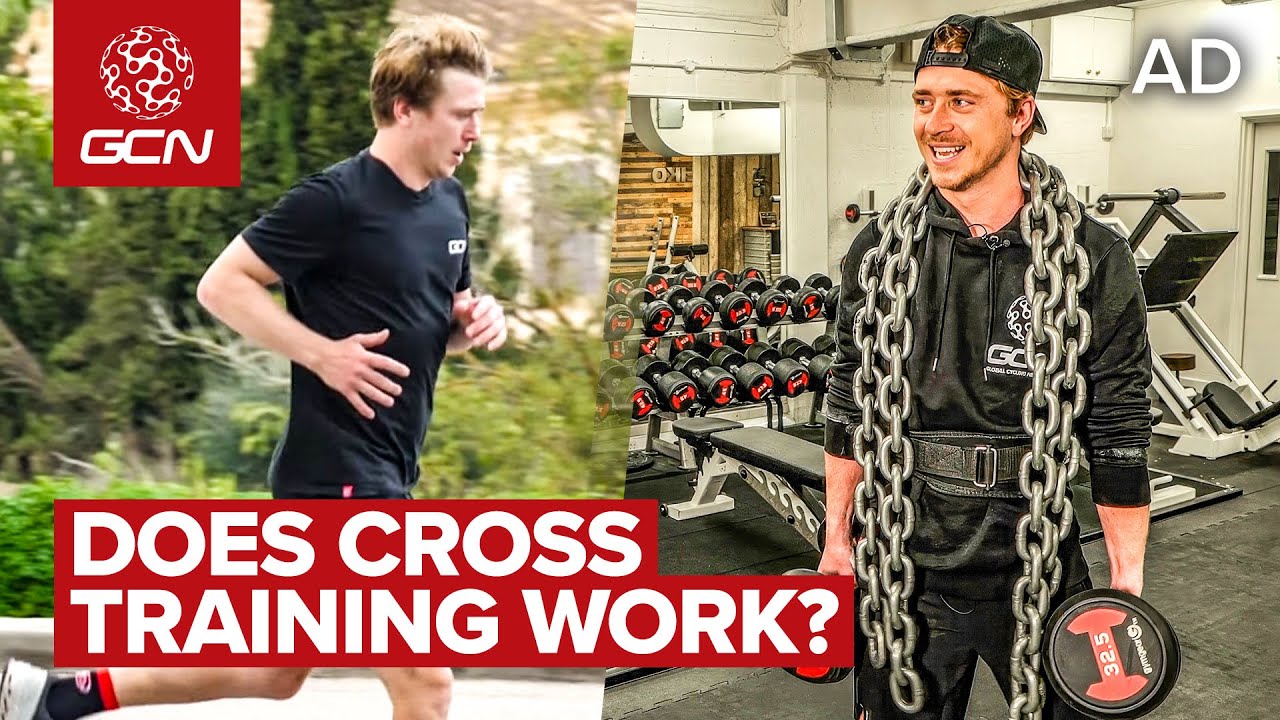Can Other Sports Improve Your Cycling Fitness? with GCN
Source: GCN Youtube Channel: Can Other Sports Improve Your Cycling Fitness?
Video Can Other Sports Improve Your Cycling Fitness? with Global Cycling Network
Video Can Other Sports Improve Your Cycling Fitness? with Global Cycling Network YouTube Channel.
Can Other Sports Improve Your Cycling Fitness?
Global Cycling Network’s 30 and 30 challenge on Zwift in January was a huge success, with thousands of participants joining in from around the world. The challenge was simple: complete 30 minutes of exercise every day for the entire month. This was not just limited to cycling; participants were encouraged to engage in various forms of exercise including running, swimming, walking, and more.
**Mixing it Up with Cross Training**
Cross training refers to the practice of mixing up different sports or activities to improve overall health, fitness, and specific goals, such as cycling. While most participants in the challenge were avid cyclists, they were also open to engaging in other forms of exercise. The question arises: do other sports actually help to improve cycling performance? The varied experiences of the participants shed light on the potential benefits of cross training for cyclists.
**Cycling vs. Running: Exploring the Science**
GCN presenter Simon Richardson reflects on his personal experience, revealing that he has recently taken up running. Despite his initial reluctance, he found that running has added an enjoyable dimension to his fitness routine. He explains that while he is not convinced that running will directly improve his cycling performance, research from the universities of New Mexico and California suggests that mixing cycling and running can help maintain aerobic performance. This supports the idea that engaging in alternative sports can contribute to overall fitness and possibly enhance cycling performance. However, Richardson expresses concern about potentially losing anaerobic fitness, a critical component of cycling, by focusing on running.
**Swimming and Surfing: Unconventional Fitness**
In addition to running, Richardson discusses his engagement in swimming and surfing as part of his January challenge. Although there is limited research on the direct impact of swimming on cycling performance, studies have indicated that swimming may improve cognitive function and reduce artery stiffness. Richardson shares that swimming and surfing contribute to his overall fitness and mobility, enhancing his performance when he returns to cycling.
**The Impact of Gym Work**
Richardson also highlights the benefits of gym work, particularly during the winter months. He notes that gym workouts are efficient, effective for anaerobic efforts, and aid in injury prevention. The versatility and convenience of gym sessions allow for a structured approach to fitness, complementing on-bike training while offering a different experience.
**The Power of Walking**
Walking, often overlooked in discussions of fitness and athletic performance, emerges as a surprisingly beneficial form of exercise. Richardson emphasizes the multitude of benefits associated with regular walking, citing studies that show reduced illness and improved health outcomes for those who incorporate daily walks into their routines. This simple yet effective form of exercise complements the variety of activities undertaken during the 30 and 30 challenge.
**The Role of Cross Training in Cycling Performance**
The insights from Richardson and his fellow GCN presenters introduce a thoughtful discussion on the potential impact of cross training on cycling performance. While the direct correlation between other forms of exercise and cycling prowess remains a topic of exploration, the benefits of diversifying one’s fitness routine are evident. The experience of the 30 and 30 challenge participants serves as a testament to the value of exploring different activities to enhance overall health and fitness.
In conclusion, Global Cycling Network’s 30 and 30 challenge offers a compelling narrative of the diverse ways in which individuals can engage in cross training to elevate their fitness levels. While the direct impact of alternative forms of exercise on cycling performance is subject to ongoing research and debate, the holistic approach to fitness promoted by the challenge highlights the importance of embracing a variety of physical activities. As participants continue to share their experiences and insights, the dialogue surrounding the intersection of cycling and cross training will undoubtedly evolve, shaping the way individuals approach their fitness journeys.
The opinions expressed in this space are the sole responsibility of the YouTube Channel Global Cycling Network and do not necessarily represent the views of CicloNews.










